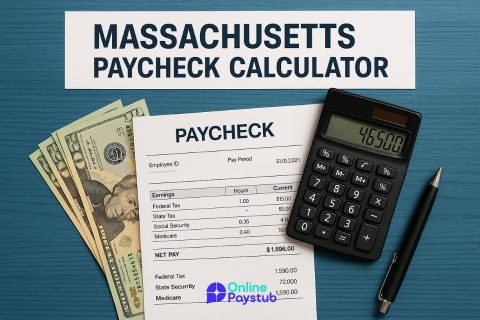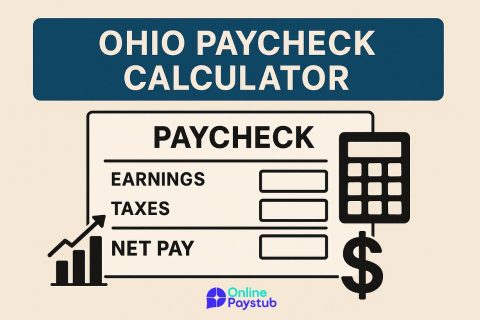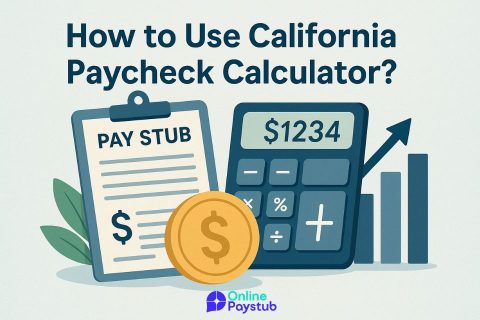In South Carolina, your net pay also referred to as take-home pay is the portion of your earnings that remains after all mandatory and optional deductions have been applied. While your gross salary might reflect your compensation agreement, it rarely matches what ends up in your bank account. Understanding the composition of your paycheck is essential for accurate budgeting, retirement planning, and tax strategy.
The components affecting your paycheck include federal income tax, FICA taxes (Social Security and Medicare), and South Carolina state income tax. Beyond these, optional deductions such as health insurance premiums, retirement contributions (e.g., 401(k)), and flexible spending accounts can significantly alter your net income.
As of 2025, South Carolina uses a progressive income tax model ranging from 0% to 6.4%, depending on income level. Individuals earning below $3,460 pay no state tax, while those above $17,330 reach the highest bracket. However, due to exemptions, allowances, and pre tax benefits, two employees with identical gross incomes might receive significantly different net pay.
Analyzing a pay stub line by line helps clarify each deduction’s impact. For instance, Social Security tax is fixed at 6.2% up to an annual wage limit, while Medicare tax applies at 1.45% for all wages, with an additional 0.9% surtax for income exceeding $200,000. State-level deductions depend on your W-4 filing and whether any additional withholdings are elected.
Understanding these deductions provides control. It helps individuals anticipate changes during life events such as marriage or job changes that might trigger a need to adjust withholdings, or shift contributions to tax-advantaged accounts.
Breakdown of Withheld Taxes on SC Paychecks
FICA, federal and state taxes: who takes what and how much
Understanding the tax components withheld from each paycheck is critical for assessing your financial picture accurately. In South Carolina, several distinct taxes are deducted before earnings reach your account. Each serves a separate purpose and is calculated using different formulas.
Federal income tax is the largest and most variable portion. Based on the IRS W-4 form, this tax considers filing status, dependents, and any additional income or deductions. Because the IRS no longer uses allowances, withholding is determined by actual dollar amounts reported on the form.
Next is FICA tax, which includes two elements: Social Security and Medicare. For 2025, 6.2% of wages up to $168,600 is allocated to Social Security. Medicare tax is calculated at 1.45% on all earnings, with an additional 0.9% applied on income above $200,000 for single filers. These contributions support federal retirement and healthcare programs.
South Carolina state income tax is imposed on a graduated scale. For example, no tax is applied on income under $3,460, but wages over $17,330 are taxed at the highest rate of 6.4%. Withholding is affected by the information provided on the SC W-4, which mirrors federal data in most cases.
South Carolina State Income Tax Structure
From 0% to 6.4%: how your income bracket determines your tax load
South Carolina applies a progressive state income tax system designed to scale with individual earnings. Rather than a flat percentage, taxpayers fall into one of several income brackets, each with its own applicable rate. This structure results in higher earners paying a greater share of their income in taxes, while low-income individuals may owe nothing.
For the 2025 tax year, the brackets are structured as follows:
- Income up to $3,460: 0%
- Income between $3,460 and $17,330: 3.0%
- Income exceeding $17,330: 6.4%
Unlike some states that adjust tax rates based on filing status, South Carolina uses the same brackets for all individuals, regardless of whether they file as single, married, or head of household. This uniformity simplifies calculations but limits flexibility in joint filing strategies.
In practice, the impact of these rates is moderated by various factors. Pre-tax contributions to retirement plans or health savings accounts reduce taxable income. Changes in W-4 entries also influence the amount withheld throughout the year.
What makes the South Carolina system distinctive is the absence of local income taxes. Employees living or working in cities like Charleston, Columbia, or Greenville are subject only to the state tax, unlike residents in many other states where county or municipal surcharges may apply.
For high-income earners or those with complex financial situations, tax planning can optimize liability by timing income, leveraging deductions, or coordinating with federal strategies. Understanding the state’s tax design is essential for managing paycheck expectations and long-term planning.
Hourly vs. Salaried: Paycheck Calculation Differences
How employment type affects net income
In South Carolina, paycheck calculations differ significantly depending on whether an employee is classified as hourly or salaried. Though both are subject to the same tax structures, the frequency and method of calculation introduce key differences in how net income is determined.
Hourly employees are paid based on the number of hours worked during a pay period. Their gross income fluctuates depending on overtime, shift differentials, and changes in scheduled hours. Calculations begin by multiplying the hourly rate by total hours worked, then applying relevant withholdings such as federal income tax, FICA, and South Carolina state tax. For hourly workers, even small variations in weekly hours can produce noticeable shifts in take-home pay.
Salaried employees receive a fixed annual compensation divided evenly over pay periods, whether weekly, bi-weekly, or monthly. Their paycheck remains consistent, offering predictability. However, salaried workers may not receive additional pay for overtime unless classified as non-exempt under the Fair Labor Standards Act (FLSA).
The classification also affects eligibility for benefits. Salaried positions often come with more comprehensive benefit packages, which can increase the number of pre-tax deductions and alter the net paycheck calculation. Hourly employees may have fewer benefit deductions, but this varies by employer.
A paycheck calculator must account for these nuances. For hourly workers, it must allow variable input for hours, multiple pay rates, and potential overtime. For salaried employees, the tool focuses more on deduction schedules, withholding settings, and benefit contributions.
Ultimately, understanding the distinction between hourly and salaried status helps individuals interpret their paycheck data more accurately, choose suitable financial planning tools, and ensure accurate withholding.
Pre-Tax vs. Post-Tax Deductions in SC
The hidden levers of paycheck outcomes
The distinction between pre-tax and post-tax deductions is one of the most important yet frequently overlooked elements in paycheck calculations. In South Carolina, these deductions play a central role in determining the actual amount an employee receives after taxes.
Pre-tax deductions are subtracted from gross income before any federal or state taxes are calculated. These typically include contributions to employer-sponsored retirement accounts like 401(k) or 403(b), premiums for health, dental, and vision insurance, as well as contributions to health savings accounts (HSAs) or flexible spending accounts (FSAs). Because they reduce taxable income, these deductions can significantly lower both federal and South Carolina state income tax obligations.
For example, contributing $4,000 annually to a 401(k) plan could reduce taxable income by that same amount, potentially lowering state income tax exposure if it shifts total earnings into a lower bracket. The benefit is twofold: reduced current tax burden and long-term retirement savings.
Post-tax deductions, on the other hand, are withheld after all applicable taxes have been assessed. Common examples include Roth 401(k) contributions, union dues, and payments for voluntary insurance plans not eligible for pre-tax treatment. These do not reduce the taxable income and thus do not provide immediate tax savings.
For accurate paycheck estimation, calculators must differentiate between deduction types and apply them in the correct sequence. Misclassifying deductions can result in unexpected tax liability or over-withholding, both of which affect overall financial health.
Mastering the use of these deductions allows employees to tailor their financial strategy. Whether optimizing retirement savings or managing healthcare costs, understanding how these categories influence net income is essential.
For individuals seeking precision in calculating net income or analyzing deductions, relying on manual methods can lead to overlooked variables and inaccurate estimates. Whether managing full-time wages, part-time shifts, or complex benefit scenarios, having access to a dependable digital tool streamlines the entire process.
To simplify your paycheck and paystub calculations specific to South Carolina requirements, consider using Online Pay Stubs. It offers detailed breakdowns, supports multiple income types, and aligns with both federal and state withholding rules. For anyone aiming to understand their financials clearly or maintain accurate payroll documentation, it provides a structured and compliant solution tailored to South Carolina’s tax framework.




No comments to show.